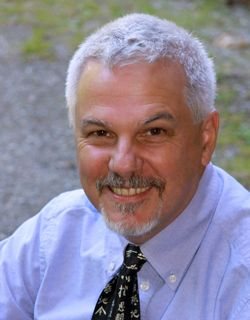
Archive Copy.
Dr. Ken Beatty is author/co-author of more than 130 English as a Second Language textbooks used worldwide from the primary to tertiary levels, as well as books on Computer Assisted Language Learning. He has worked at universities in Canada, China, Hong Kong, the United Arab Emirates, and the USA, and given more than 200 teacher training presentations and 92 conference presentations throughout Asia, the Middle East, and North and South America. He is currently TESOL Professor at Anaheim University.
Webcast Featured Presentation
Running with Scissors: Authenticity in the Classroom
Authenticity is controversial in language classrooms with divisions of authenticity of task, materials and situation. Authenticity of task questions whether students are learning language in a way that would seem natural outside the classroom. For example, a loosely structured roleplay is closer to reality than memorizing and delivering an epic poem.
Authenticity of materials covers a continuum that begins with inauthentic materials wholly created by a teacher or materials developer. Constructed materials are modified from real-world materials. Authentic materials are defined as those created for non-pedagogical L1 purposes. Examples of the range of materials are an inauthentic menu that consists of only three food choices, a constructed menu where low-frequency and copyright terms (Big Whopper) are simplified to more useful vocabulary items (hamburger), and an authentic, fancifully written restaurant menu.
Authenticity of situation refers to the classroom context and is more common at the primary level, such as by installing a miniature kitchen where students can interact with faux foods and appliances in roleplays. Field trips and props are other ways to instil authenticity.
Complicating ideas of authenticity is the question of selection of materials. Exposing students to a target-language newspaper or radio station aimed at native speakers would constitute an authentic experience, but more often teachers and materials developers are selective, discarding articles and audio snippets they deem too “hard” for students.
This presentation outlines the challenges of working with authenticity. Practical applications to EAP, curriculum development, and methodology are discussed.
See a preview of this plenary at http://koreatesol.org/content/beatty-nc2014-webinar-preview-video
This webcast presented by Anaheim University.



